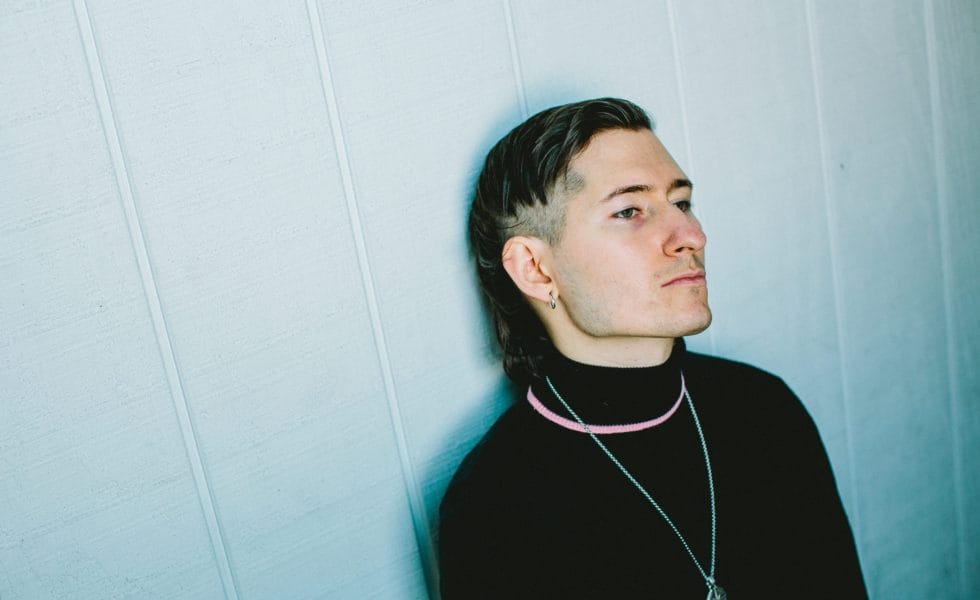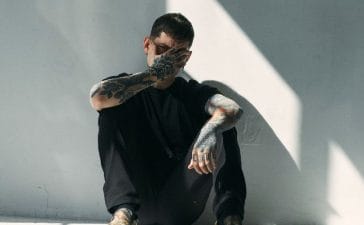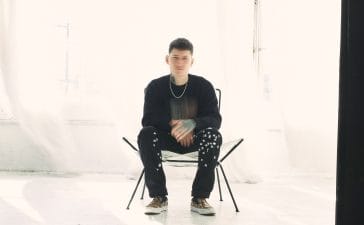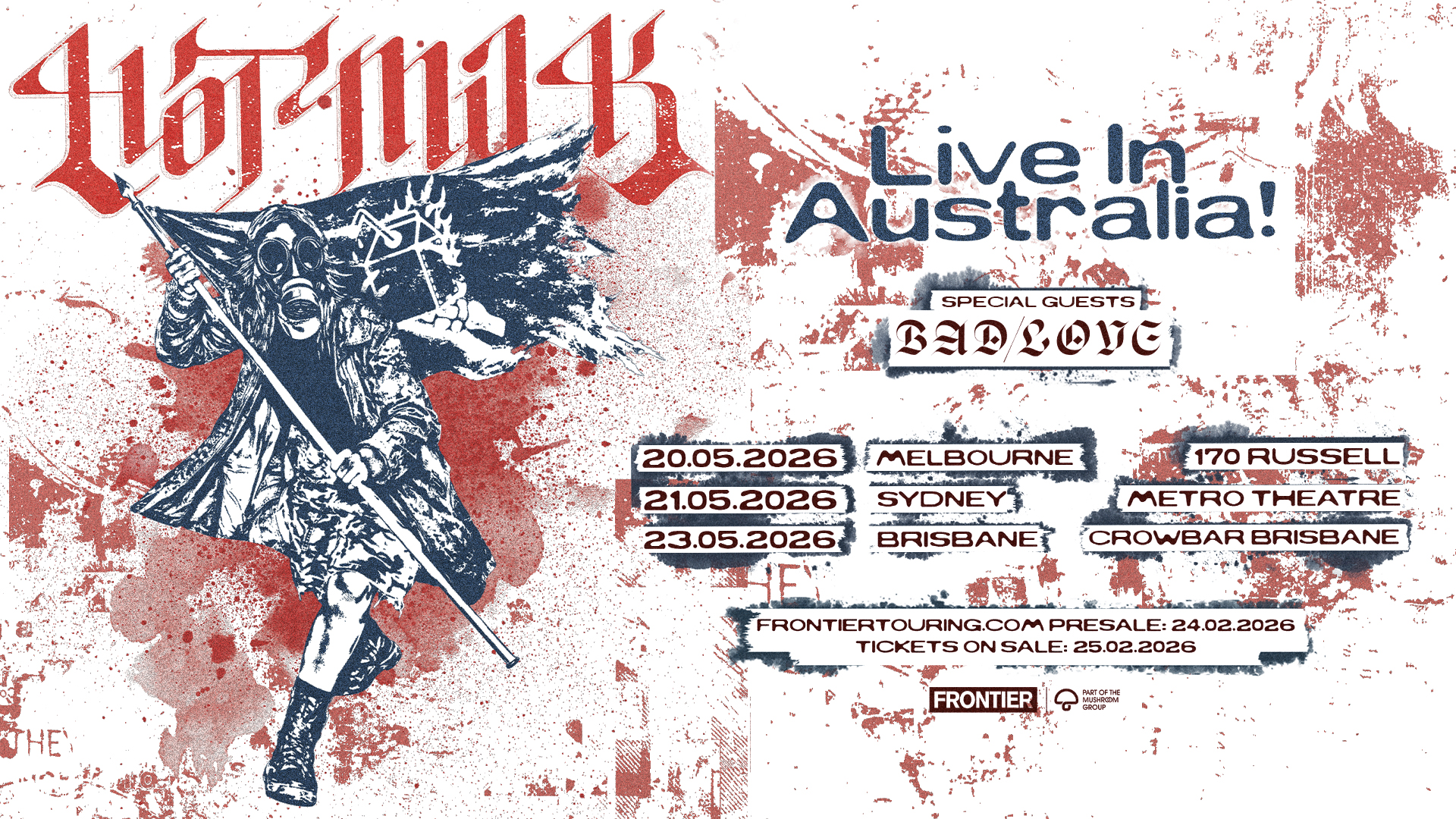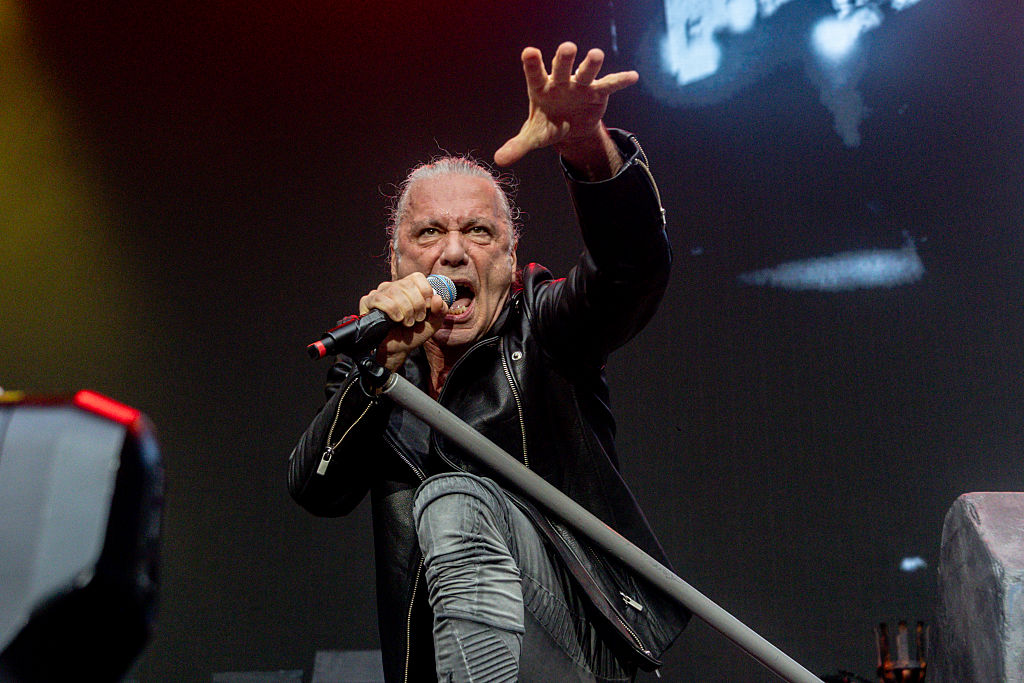There is an inevitability that many of us choose to ignore in this world until it’s too late: that bad things will happen, no matter what. People are dying, wars continue to rage on, the ocean is getting destroyed, and that’s not to mention that we’re still in a pandemic. On his latest album, Trauma Factory, nothing, nowhere comes to terms with that truth. If we’re not living in blissful ignorance, the best thing that we can do for ourselves is to be prepared to deal with the shit that goes down next.
“It is scary,” Joe Mulherin, the man behind nothing, nowhere, tells us. “But at the end of the day, you’ve got to understand that these periods in human history have happened and will happen again. Wars, famines, plagues, you name it. I mean, human beings don’t have the greatest track record…So, it was bound to happen. Something was going to happen in our lifetimes. Maybe this is it, maybe there’s more, I don’t know, but the fact that I’m here talking to you right now and we have the internet and I have a house, I have people who love me, I mean, at the end of the day, you just have to look at what you do have and be grateful for that.”
There is solidarity in the human experience, which is what Mulherin is holding onto. It’s evidenced in the way that communities come together in crises, where bonds are formed that aren’t marred by competitiveness or status or followers. When we’re roughing it, we’re all working towards one united goal: surviving it. We redevelop empathy for each other, rather than being preoccupied with one-upping whoever’s standing next to us.
“The title track ends with, ‘Human life is a trauma factory’. And that can be viewed obviously in an optimistic light or a pessimistic light,” Mulherin explains. “I think essentially, it’s all about perspective and I think there’s a lot of beauty in the fact that life is pain and life is suffering and you will experience suffering in your life but at the same time you know that every other person that has ever lived and will ever live has also experienced that same suffering. So you find a lot of common ground and you find a lot of companions and you’re able to be more gentle and compassionate with people knowing that they inevitably will suffer in their life. And I think that even though human life is a trauma factory, I think that ultimately that line in the title is a positive thing for me.”
Having said that, it can’t be assumed that we’re all just automatically able to process the emotions when they come. Burning out as a result of global crises in particular is a genuine affliction these days, with the World Health Organization penning the term “compassion fatigue” to describe how we react when we’re overwhelmed with exposure to other people’s trauma. Mulherin has a method of defence against when the overload kicks in and stops him from being an active participant in his own life.
“We’ve begun to expect the worst,” he observes. “I think it’s just been a hard year and a half for everyone and especially people who have already been struggling with mental illness. So for me, I just need to double down…If I’ve been meditating, I gotta meditate more. If I’ve been reaching out to my family, I gotta talk to them more. It’s just more maintenance at the end of the day. And it is dark, it is sad.”
This isn’t just a one-off occurrence as a consequence of the pandemic, which fans of nothing, nowhere would know all too well. Mulherin, like many of us, struggles with anxiety. It manifests in his life in the form of panic attacks, breakdowns and insomnia. He asserts: “I realised at a young age, this is something that I just have to live with. Everyone has something and that’s my thing that I have to deal with.”
The way that he deals with it is through repeating a system that he knows will help maintain his frame of mind, though, like everything else worthwhile in this world, it does take work.
“I figured out, the main staple for me would be meditation and that is just sitting in silence once or twice a day and just focusing and doing breath work, doing guided or non-guided [meditation], that’s been a huge thing for me. And then also Western medicine as well, going to a psychiatrist and a therapist and just keeping on myself about being physically active, reaching out to friends and family. I just think that there’s a checklist for me and if I don’t check off every single one, I’ll start to break down. You know what I mean? Like a car, if the car doesn’t get the oil changed, it’s going to break down. It’s just a lot of maintenance, I guess.”
He’ll be upholding his current process until he can get back on the road to tour on his new album, which has had a relatively anti-climactic release given how much of a milestone this is in Mulherin’s life.
“It’s just, it’s always a weird experience releasing an album because you spend, in this case, it was two years in the making, you spend your entire time promoting it and creating the art and then release day comes and it’s out. And then you’re like, ‘Yes, we did it.’ And then the next day you’re like, ‘Alright, now what?’”


